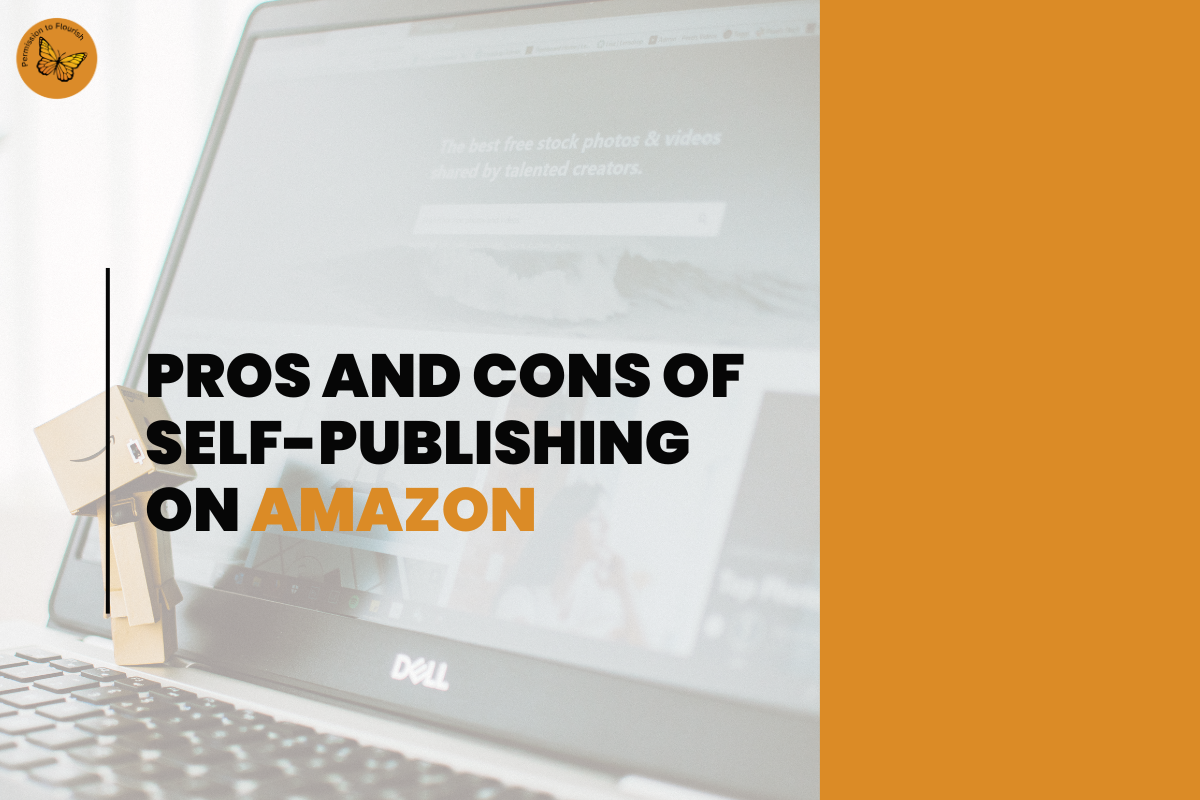📣 Upcoming Event: Fearless Women's Summit, Seattle, WA 2025 – August 16, 2025 at Crowne Plaza Seattle-Downtown, 9am – 4:30pm Let's be a part of this impactful event!!!

Pros and Cons of Self-Publishing on Amazon
The method of self-publishing through Amazon has transformed how authors distribute their books in the marketplace. The Amazon Kindle Direct Publishing (KDP) platform provides an accessible publishing solution for both new writers and established authors. Any opportunity presents a combination of benefits and challenges. This section covers the benefits and drawbacks associated with self-publishing books through Amazon.
Pros of Self-Publishing on Amazon
Authors who choose self-publishing maintain full authority over their creative output. Your book presentation to the world remains under your control from the content through to the cover design, formatting, and marketing strategies.
Self-publishing through Amazon KDP provides authors the possibility to earn up to 70% royalties on ebooks priced between $2.99 and $9.99 compared to traditional publishing, which typically offers royalties between 5-15%. The potential profit from each book sale increases.
Amazon enables authors to reach millions of readers across the globe. KDP allows you to distribute your book internationally, which helps you reach audiences outside of local bookstores.
Self-publishing on Amazon enables authors to launch their books in 24-72 hours after submission, whereas traditional publishing methods require several months to years. Authors who wish to publish their work quickly should consider this option.
Authors may establish their own pricing and modify it at any time. Authors retain the ability to make changes to their manuscript and cover design at any time through self-publishing, unlike traditional publishing methods.
Through its print-on-demand system, Amazon helps authors avoid initial printing costs and inventory management responsibilities. The financial risk diminishes for authors because readers purchase physical copies only when they need them.
Cons of Self-Publishing on Amazon
When authors choose self-publishing, they must take charge of their own book promotion efforts. As an author, you need to establish effective approaches to reach readers through social media platforms and email distribution lists or paid advertising campaigns.
The sheer number of books on Amazon presents a significant challenge for authors who want to distinguish their work. Your book will likely have difficulty gaining visibility if you do not establish a strong marketing plan.
Despite Amazon maintaining a monopoly over online book sales, many traditional bookstores show reluctance when it comes to carrying self-published titles. To achieve distribution through bookstores, you should consider alternative distribution avenues.
Amazon offers free book publishing, but costs for editing professionals, cover design services, and formatting tools can become significant. A high-quality book requires financial investment in editing, design, and formatting services.
Amazon reserves the right to modify its policies as needed, which may impact both royalty payments and how visible books are on its platform. Enrolling in Kindle Unlimited or KDP Select requires you to agree to exclusive selling terms for your ebook.
Even though self-published books have improved in quality, many readers and industry experts continue to treat self-publishing as a less prestigious option compared to traditional publishing. To break through lingering self-publishing stigma, authors need strong writing skills, professional editing, and effective branding.
Final Thoughts
Authors find significant opportunities through self-publishing on Amazon because it provides worldwide access to readers along with creative control and greater royalty earnings. Success in self-publishing demands a combination of dedicated effort along with strategic marketing initiatives and quality production investments. Comprehending all the positive aspects along with the difficulties will help you decide if self-publishing fits your needs.
Are you considering self-publishing? What challenges or benefits have you encountered? Share your thoughts in the comments below!
Schedule a complementary call with us to go over your requirements and see how we could help you flourish.